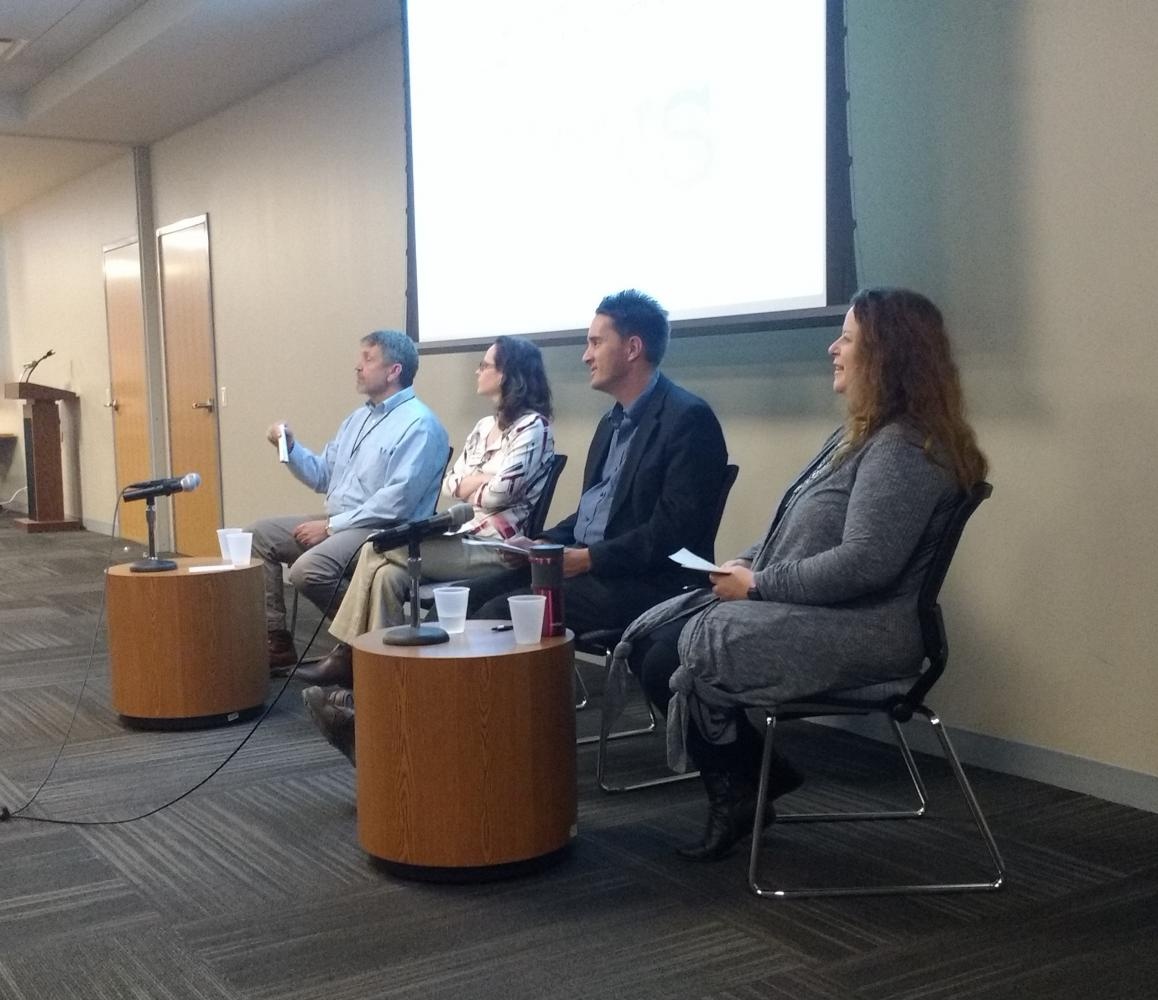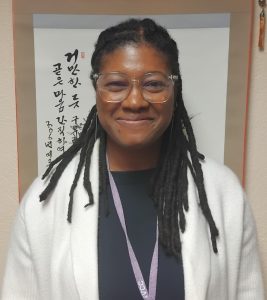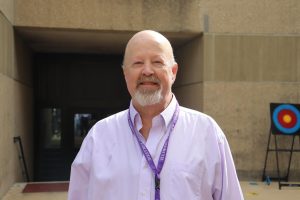Noise vs. News Session Four: News media panel shares views on reporting and news climate
Left to right: journalists Jeff Dankert, Jenna Dooley and David Giuliani give news perspectives with Amanda Cook Fesperman moderating at the final Noise vs. News event.
April 27, 2017
“Mainstream journalism has an intention of delivering you a story, with the facts, an accurate reflection of reality, with the things you want to know about that story,” said NewsTribune reporter Jeff Dankert. “I think every journalist, here and elsewhere, is trying to do that, every day.”
Three journalists discussed today’s challenges for reporters and the public and took questions from the audience at the final Noise vs. News event held April 27 at IVCC. WNIJ “All Things Considered” host Jenna Dooley, The Times reporter David Giuliani and Dankert provided their unique perspectives as both members and consumers of news media. Amanda Cook Fesperman, IVCC Political Science and History professor, moderated the event.
Fesperman asked if people can trust mainstream news. “Yes, I think people can trust us,” Giuliani reflected. “I mean, do we have bias? Yes, every human has bias. What we’re trained to do is recognize those biases and minimize them as much as possible.”
To ensure journalistic integrity, Giuliani said that in his newsroom, as in others, “we’re always questioning each other, like ‘did you get this source, did you get this side, did you get the public documents to back it up?’”
“If I’m interacting with a member of the public for the first time, I need to explain what I’m doing,” said Dooley, “I shouldn’t assume that they trust me just because I’m with the media.”
https://www.youtube.com/watch?v=kPZAwgdbeDk
The popular term “fake news” was discussed. “I define it as concocted stories,” said Giuliani. “What Trump refers to as fake news is not fake news.”
“The issue with a blanket term like “fake news” is it offers no specificity of what the issues is and it offers no solution on how you can solve it,” said Dooley. “I think what would be more helpful instead of using “fake news” would be to say, ‘yeah, that’s inaccurate, that was plagiarism, that was fabrication, that was misleading, that was taken out of context.’”
“It comes down to intention,” explained Dankert on his outlook on fake news. “The intention wasn’t to be informative or to be true. The attention was to make money off of clicks on the Internet and to deceive.
“All the rest of journalism that’s trying to do a good job, they’ll make mistakes, but it doesn’t come close to the intention.”
“What do you do when you get it wrong to make it right?” asked Cook Fesperman. Each panelist shared how important it is for them to quickly and visibly correct any mistakes that occur in reporting.
“To a reporter, I can tell you, nothing ruins your day more,” Dankert said on making a mistake. “We don’t want to get anything wrong. We go to great pains not to.”
Panelists spoke about the need for people to be critical thinkers and to be able to discern whether news is legitimate. “News literacy is something that should be taught and respected,” Dooley said.
“We all share in the blame here, from the sender to the news; we’re all part of this mix,” said Dankert. “There’s a good deal of the public that needs to be news literate.”
In response to a question from the audience, Giuliani emphasized that the mission of journalists is to “speak to the people.” He said, “I try to use words that are simple, concise and clear.” All three journalists spoke about the importance of reporters putting political jargon into plain language so it can be understood by everyone.
Dankert addressed the issue of whether or not to silence people who are disseminating things that aren’t true. “Freedom of speech has to win,” he said with conviction, “and for freedom of speech to win, we can’t be snuffing voices and muzzling people.”
Reflecting on how journalism and the universe of the Internet now coexist, Dooley said, “I’m not in the business of policing that, and I believe in the First Amendment, so I think that they can share the same spaces, and it’s a good thing.”
In response to today’s media climate and news relations with the public, Dankert urged, “hold the mainstream press accountable, but don’t give up on it.”




